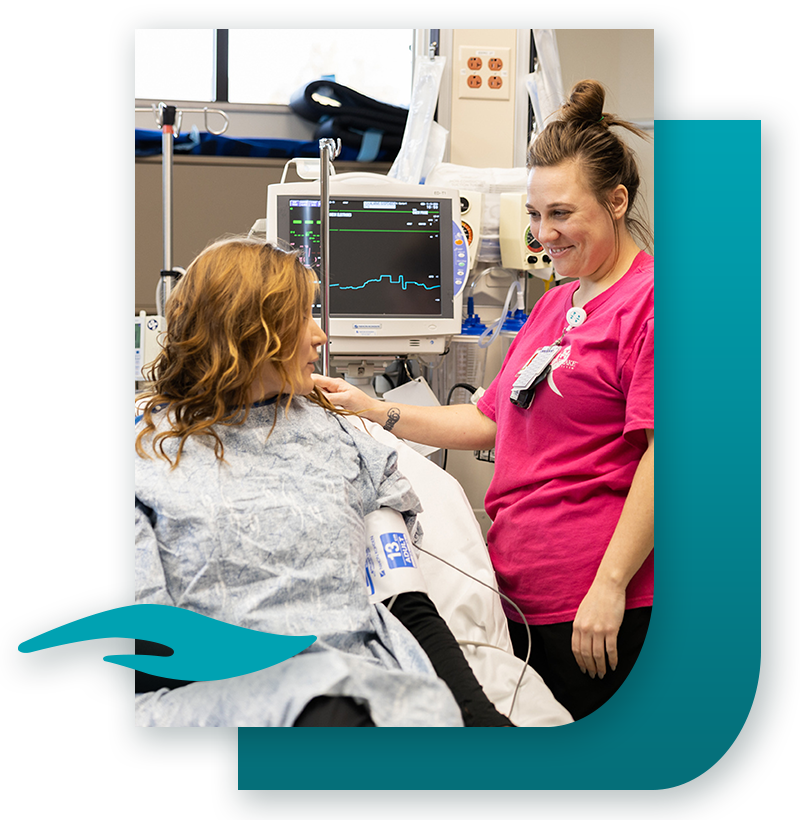
Welcome
Your Local Urgent Care Center
Grand Lake Health System’s Urgent Care offers extended access to high-quality healthcare when you need it most. Designed for after-hours care, our center treats minor illnesses and injuries that require prompt attention but do not require a visit to the emergency department. Patients receive fast, convenient, and affordable care from a professional, compassionate staff—providing peace of mind for you and your family.
Urgent Care Hours:
Monday-Friday: 4:00 – 9:00 PM
Saturday-Sunday: 10:00 AM – 5:00 PM
Urgent Care is located at the back entrance of Grand Lake Health System. Patients should park in the Emergency Center parking lot and enter through the Emergency entrance.

Urgent Care
When to visit Urgent Care?
The Urgent Care at Grand Lake Health System performs a valuable healthcare service that’s positioned between the doctor’s visit and the hospital emergency room. Visit the Urgent Care for treatment of the following:
- Abrasions, Cuts, Bumps or Bruises
- Cough, Cold Symptoms or Fever
- Minor Burns
- Eye Infections
- Nausea And Vomiting That’s Not Severe or Debilitating
- Small Bone Fractures
- Sore Throat or Ear Infection
- Sprains And Muscle Strains, Including Back Pain
- Urinary Tract Infection
Urgent vs. Emergency
Just as you shouldn’t make a doctor’s appointment for persistent chest pain or severe bleeding, neither should you visit an urgent care facility for these symptoms. Urgent Care is ideal for patients who need care for minor illnesses and injuries during hours when their doctor’s office is closed. It’s important to understand the difference. Here are examples of emergency symptoms – or when not to visit Urgent Care:
- Bleeding that won’t stop after 10 minutes of direct pressure
- Complicated fractures or broken bones
- Coughing up or vomiting blood
- Major injury such as head injury
- Poisoning
- Severe shortness of breath
- Chest pain
- Signs of stroke, like sudden onset of numbness in the arms or legs
- Suicidal or homicidal feelings
Billing and Payment
Grand Lake Health System does not refuse care to anyone. The amount you pay for your Emergency Center visit will depend on your insurance plan and the treatment you receive. You may expect to see fees for emergency physicians, fees for hospital care, or fees for other services. Grand Lake Health System’s Urgent Cares require a copy of your current insurance card at the time of service. Insurance co-pays will be collected up front.